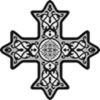Post by elionberger on Aug 6, 2012 3:21:51 GMT 2
Hello everybody,
We are beginning our discussion on The Orthodox Church by Kallistos Ware. This week we will focus on the Introduction, The Beginnings, and Byzantium: The Church of the Seven Councils.
Any questions and comments are welcome. Also, feel free to offer additional resources that will help in this discussion.
A few questions of my own that arise while reading:
1. We all know that the decent of the Holy Spirit was the beginning of the Christian community. This passage from Acts (2:2-4) has always interested me. I am curious as to what this event must have looked and felt like. There is a church right next to my apartment that, sometimes, wakes me up early in the morning because they are “speaking in tongues” . . or, at least is sounds like it. I have also heard some Christian friends talk about, “speaking in tongues” and how they have “felt” the holy spirit, etc. I never have . . and I have always been skeptical about this. So, how are we to understand this passage out of Acts, “Suddenly there came from heaven a sound like the rushing of a violent wind, and it filled the whole house where they were sitting. And there appeared to them tongues like flames of fire, divided among them and resting on each one. And they were filled with the Holy Spirit.” How did the beginning of the Christian Community look and feel?
2. From “The Establishment of an imperial Church”:
A. “Constantine stands at a watershed in the history of the Church. With his conversion, the age of the martyrs and the persecutions drew to an end, and the Church of the Catacombs became the Church of the Empire.”
B. The story of Constantine confuses me. On one hand, I know he is revered as a saint and the founder of Constantinople. He was the initiator and head of the Council of Nicea in 325. Christianity became accepted. As Fr. Thomas Hopko puts it in his “Bishops” podcast, Christians began to have time on their hands. Time to debate and discuss the core of their faith and to piece together the Creed.
C. On the other hand, it seems to me that Constantine was tricked. I can’t help but think of Jesus’ temptation in the desert. You can have all the kingdoms and riches of the world if you only bow to me (Satan). Every time I hear the story of Constantine I can only think that Satan tempted him and he fell. He turned Christianity into an elite institution. The description of the Council of Nicea in 325 by Eusubius was, “splendid beyond description. Detachment of the bodyguard and other troops surrounded the entrance of the palace with drawn swords, and through the midst of these the men of God proceeded without fear into the innermost of the imperial apartments. Some were the Emperor’s own companions at table, others reclined on couches ranged on either side. One might of thought it was a picture of Christ’s kingdom, and a dream rather than reality.”
i. “A picture of Christ’s Kingdom”? . . . My understanding of Christ’s kingdom was that of a mustard seed; a kingdom that cannot be experienced unless one become like a child; a kingdom that is present within us, within the body of Christ.
ii. Forgive me, and please be as honest as possible in your responses, but reading Constantine’s story makes me think that he was tricked and Christianity was compromised and became an institution for high minded theologians and scholars and emperors. What do you think?
We are beginning our discussion on The Orthodox Church by Kallistos Ware. This week we will focus on the Introduction, The Beginnings, and Byzantium: The Church of the Seven Councils.
Any questions and comments are welcome. Also, feel free to offer additional resources that will help in this discussion.
A few questions of my own that arise while reading:
1. We all know that the decent of the Holy Spirit was the beginning of the Christian community. This passage from Acts (2:2-4) has always interested me. I am curious as to what this event must have looked and felt like. There is a church right next to my apartment that, sometimes, wakes me up early in the morning because they are “speaking in tongues” . . or, at least is sounds like it. I have also heard some Christian friends talk about, “speaking in tongues” and how they have “felt” the holy spirit, etc. I never have . . and I have always been skeptical about this. So, how are we to understand this passage out of Acts, “Suddenly there came from heaven a sound like the rushing of a violent wind, and it filled the whole house where they were sitting. And there appeared to them tongues like flames of fire, divided among them and resting on each one. And they were filled with the Holy Spirit.” How did the beginning of the Christian Community look and feel?
2. From “The Establishment of an imperial Church”:
A. “Constantine stands at a watershed in the history of the Church. With his conversion, the age of the martyrs and the persecutions drew to an end, and the Church of the Catacombs became the Church of the Empire.”
B. The story of Constantine confuses me. On one hand, I know he is revered as a saint and the founder of Constantinople. He was the initiator and head of the Council of Nicea in 325. Christianity became accepted. As Fr. Thomas Hopko puts it in his “Bishops” podcast, Christians began to have time on their hands. Time to debate and discuss the core of their faith and to piece together the Creed.
C. On the other hand, it seems to me that Constantine was tricked. I can’t help but think of Jesus’ temptation in the desert. You can have all the kingdoms and riches of the world if you only bow to me (Satan). Every time I hear the story of Constantine I can only think that Satan tempted him and he fell. He turned Christianity into an elite institution. The description of the Council of Nicea in 325 by Eusubius was, “splendid beyond description. Detachment of the bodyguard and other troops surrounded the entrance of the palace with drawn swords, and through the midst of these the men of God proceeded without fear into the innermost of the imperial apartments. Some were the Emperor’s own companions at table, others reclined on couches ranged on either side. One might of thought it was a picture of Christ’s kingdom, and a dream rather than reality.”
i. “A picture of Christ’s Kingdom”? . . . My understanding of Christ’s kingdom was that of a mustard seed; a kingdom that cannot be experienced unless one become like a child; a kingdom that is present within us, within the body of Christ.
ii. Forgive me, and please be as honest as possible in your responses, but reading Constantine’s story makes me think that he was tricked and Christianity was compromised and became an institution for high minded theologians and scholars and emperors. What do you think?







